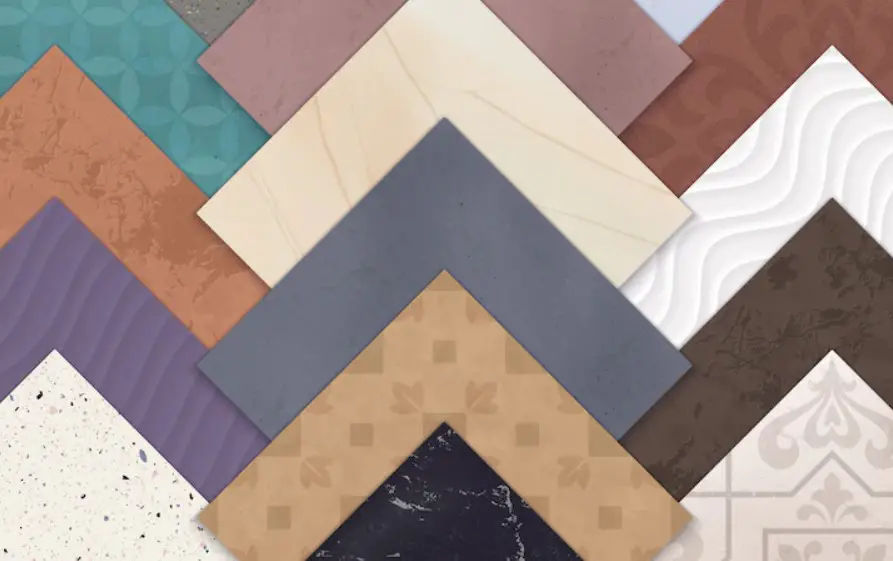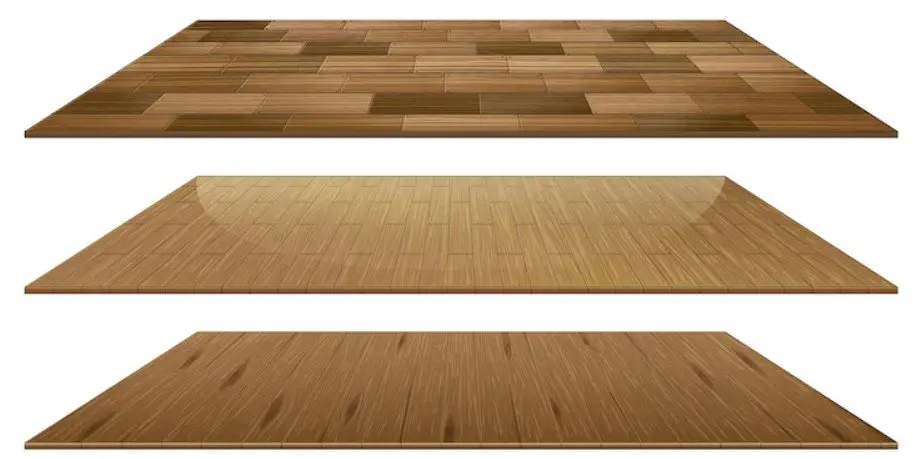Last Updated on July 12, 2023 By Emma W. Thomas
Granite floor tiles have several advantages such as affordability, elegant appearance, and durability. These tiles are also resistant to moisture and water, which can cause health hazards and damage to the flooring. Since the material is also resistant to allergens and bacteria, they are safe even for people with allergy problems.
What are some advantages of buying granite floor tiles?

There are various benefits of having granite flooring, including;
High durability
Granite is a natural stone that is hardy and highly durable, like many other varieties of naturally occurring rocks. The material can withstand pet scratches, heavy foot traffic, and furniture weight when used as flooring. It is, therefore, long-lasting and cost-effective as it does not need frequent replacement.
It is resistant to heat.
Granite has a heat resistance property that allows it to remain cool even during warmer seasons. You can comfortably walk on this floor barefoot regardless of whether it is cold or warm.
It does not fade quickly.
Granite is also fade-resistant and can be used as luxurious floor tiles on the patio. It is not affected by sunlight fading and will not get discolored even after exposure to direct sunlight for an extended period.

Moisture resistance
Granite has a moisture-resistance property that makes it a good choice for bathroom floors. When the granite flooring is sealed, it becomes highly impermeable, which prevents damage by moisture.
Granite is hypoallergenic
Granite is a good option for flooring materials, mainly where there are people with asthma or allergic reactions. This product is easy to clean to prevent dust accumulation which helps minimize allergens and other particles that can cause allergic attacks.
It is a stylish and high-value option.
Granite has a unique and luxurious appearance which helps to improve the aesthetic value of your home. Installing granite floor tiles helps to enhance your home’s value, especially if you consider selling it later.
Granite flooring is low-maintenance.
Granite is a low-maintenance material that makes it easy to maintain the beautiful look of your home. Sweeping the floor and occasionally mopping it will help keep it clean and free of dust and other particles.
What are the disadvantages of buying granite floor tiles?

Granite floor tiles have some disadvantages as well, which include;
It is a heavy material
While granite tiles are excellent for your house, they are pretty heavy and can affect your floor. You will, therefore, need the services of a professional to check whether the floor can withstand the tiles’ weight before installation.
If your home’s floor is old, it may not accommodate granite floor tiles. A square foot of granite tile weighs about 12.8 pounds, while a 1.28-inch slab can weigh about 18 pounds. But granite tiles are compatible with most floor types and will blend well with them.
It is costly
Granite floor tiles are costly due to their aesthetic and durability properties. The installation of these materials is more expensive than other types. For example, installing granite tiles on a bathroom floor can cost a few thousand dollars.
The flooring needs to be sealed regularly to maintain its beautiful shiny appearance, which is also costly.
Not an easy option for DIYers
If you are a DIY enthusiast, granite tile flooring may not be the best option since installing them is time-consuming and labor-intensive. It can take you a lot of time to work on your entire floor, delaying your other projects or engagements.
The installation process also requires power tools such as a drill, mortar, grout, and wet saw. You may incur an extra cost for hiring this equipment if you don’t have some. Make sure that your subfloor is level to prevent your tiles from cracking. You also need to ensure that the granite tiles are properly sealed to protect them from moisture, microbes, and another form of damage.
Granite tends to be slippery and get cold.
Granite floor tiles have a high-gloss finish, making it slippery and risky to walk on them. Both children and adults need to avoid slipping or falling while walking since it can lead to severe injuries.
Granite can also get cold and uncomfortable during cooler seasons, especially if you don’t have in-floor heating equipment.
What are the different types of granite floor tiles?

Different types of granite floor tiles are available in the market, and the choice you make depends on your taste. The table below is a summary of the types of tiles and some of their properties;
Granite tile types | Tones/shades | Durability |
Leather/black pearl | Dark, black, silver, brown, gold, and grey | Highly durable |
Alaska white | A light background against darker minerals | Durable |
White ice | Blue and grey tones | Long-lasting |
White sparkle | Cool grey and white tones in highlights | Quite durable |
Blue Pearl | Grey, blue, and beige shades with a metallic background | Highly durable |
Rosy pink/zero maintenance | pink | Highly durable |
Steel grey | Resemble the ocean silver pearl | durable |
Crystal yellow | Bright yellow | Highly durable and used for outdoor |
What are the different types of granite floor finishes?

Granite has different types of finishes, including;
Rough finish
A rough finish is ideal for outdoor granite tiles since they can resist weather elements like rain, sun, and frost. This type of finishing is also resistant to slipping and makes the tiles great even where there are kids that play outside.
Since the rough, non-slippery tiles can accumulate a lot of dirt on their surface, a dull color such as grey is a great choice. Dark colors do not show stains easily, and it is easy to clean and maintain their appearance.
Smooth finishing
This type of finish is suitable for indoor use floor tile. The polished floor tiles give your house a stylish smooth finish for great elegance.
Difference Between Granite Tiles and Ceramic Tiles
Granite tiles and ceramic tiles are two popular options for flooring and wall coverings, and they have several key differences:
- Material: Granite tiles are made from natural stone, specifically granite, which is an igneous rock formed from cooled magma. Ceramic tiles, on the other hand, are made from clay that is fired at high temperatures.
- Appearance: Granite tiles have a natural, unique, and varied appearance with distinct patterns and color variations. Ceramic tiles can be manufactured to mimic various materials, including stone, but they typically have a more uniform and consistent appearance.
- Durability: Granite tiles are extremely durable and highly resistant to scratches, stains, and heat. They can withstand heavy foot traffic and are known for their long-lasting nature. Ceramic tiles are also durable, but they are generally less resistant to impacts and scratches compared to granite.
- Maintenance: Granite tiles are relatively low-maintenance and easy to clean. They require regular sealing to maintain their appearance and protect against stains. Ceramic tiles are also easy to clean and maintain, requiring regular sweeping and mopping.
- Cost: Granite tiles tend to be more expensive than ceramic tiles due to the cost of the natural stone material. Ceramic tiles are generally more affordable and offer a wider range of pricing options.
Is granite flooring good for health?
Granite is a natural substance that is not dangerous for human health. But, the chemical used to polish granite may pose some health risks to you and must be handled with great care. It would help if you also were careful when taking granite as its dust can be harmful to your eyes and lungs. Ensure that you have protective clothes and gloves when sanding, cutting, or grinding granite.
Granite is safe for people with allergies and asthma problems since it is hypoallergenic. It is also excellent flooring material in homes with young kids as they can play without any risk of allergic reaction. Granite does not have pores like other natural stones and does not absorb moisture and other liquids. Germs and other allergens cannot spread or settle on granite tiles due to moisture accumulation.
Are granite tiles better than ceramic tiles?
Both ceramic and granite tiles are excellent for flooring due to their outstanding features, such as durability and sturdiness. Depending on the space, cost, and ease of installation, you can choose the tiles. The following table compares the properties of granite and ceramic tiles.
Ceramic tiles | Granite tiles |
Different variations in colors, patterns, styles, and finishes | Fewer variations. irregular appearance and color variations |
High maintenance | Low maintenance |
Less expensive | More expensive than ceramic |
Easy to install and ideal for DIY enthusiasts | Difficult to install and unsuitable for DIYers |
Moisture-resistant and very durable | Resistant to moisture and durable |
Composed of clays, sand, and natural products | They are composed mainly of feldspar and quartz but with tiny amounts of amphiboles, mica, and other minerals. |
What are other uses of granite?
Granite is an excellent option for countertops since it is resistant to knife scratches, acid erosion, and heat. It can also be used for cutlery, kitchen knives, and standard cookware since it naturally resists cracks and heat.
Granite is also ideal for use in the bathroom and kitchen flooring since it is moisture and water-resistant and will not get damaged quickly.
Can You Use Granite On The Floor?
Yes, granite can be used as a flooring material. In fact, granite is a popular choice for flooring due to its durability, strength, and natural beauty. It is commonly used in residential and commercial settings for areas such as kitchens, bathrooms, entryways, and living spaces.
Granite floor tiles are highly resistant to scratches, stains, and heat, making them suitable for high-traffic areas. They can withstand heavy foot traffic and are known for their long-lasting durability. Additionally, granite offers a wide range of colors, patterns, and finishes, allowing you to choose the one that best suits your aesthetic preferences and complements your interior design.
When properly installed and maintained, granite flooring can enhance the overall appeal and value of space while providing a durable and attractive surface.
Key highlights and points
Granite floor tiles come with many advantages when compared with other types. This material is sturdy, durable, and can withstand many weather elements such as rain and sun; therefore, ideal for both indoor and outdoor uses. There are different varieties of granite tiles with varying tones of color, giving you the option of choosing what suits your needs.
It is possible to use granite floor tiles without worrying about health issues since it is hypoallergenic. People with asthma and other health complications can comfortably live in a home with granite flooring with no risks.
References:
https://granitegold.com/blogs/blog/granite-flooring-benefits
Emma is a graduate of Domestic Science or Family and Consumer Sciences (Home Economics) from the University of Wisconsin. She has 7 years of experience Working with the strategic section of BestBuy and now writing full-time for Homeeon.
From Managing the Home, Interiors, Cleaning, and Exteriors to Gardening and everything about Making A Home Liveable – is her passion and this Homeeon is the result of this.
Emma loves decorating her home with the best stuff found online. She cares about quality over anything and writes reviews about them here in Homeeon. Get in touch with her over Pinterest.
Keep reading her blogs.

